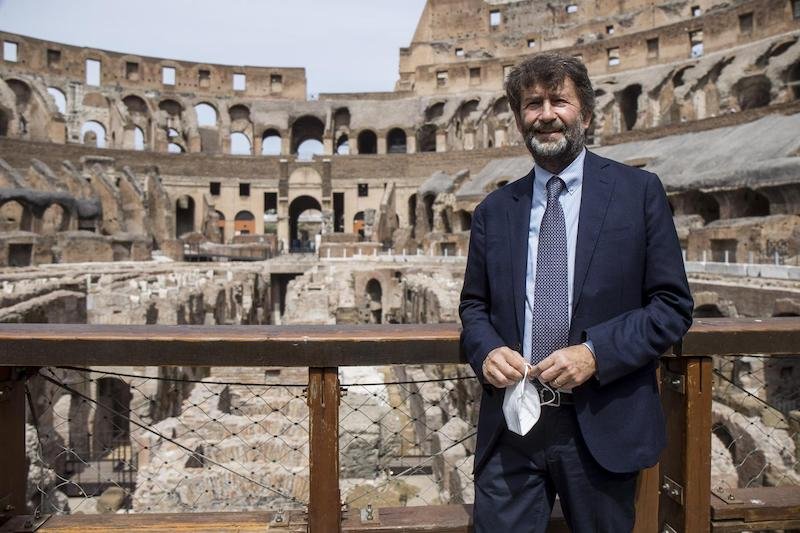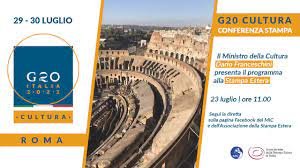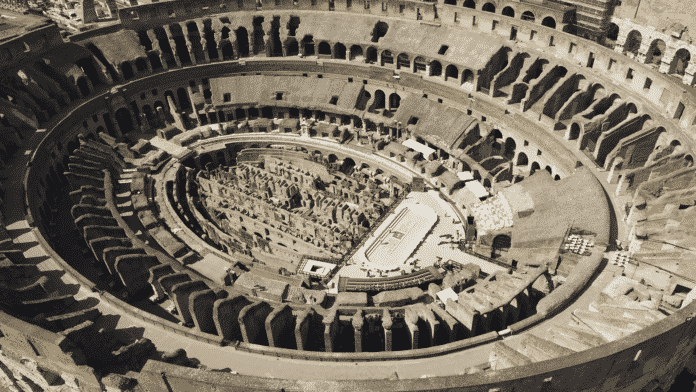ROME, JULY 30 – A 32-point pact, studied for months and shared between States, but also a starting point that will be talked about for many years to come. Hosting the first ever G20 Culture Ministers’ meeting, the Italian minister of culture Dario Franceschini reviewed the final document which was adopted at the end of the special event organized by Italy under its 2021 rotating presidency.
The Rome Declaration was unanimously adopted by the ministers of the world’s 20 largest economies. It introduces culture in the G20 agenda, recognising its economic value, and committing to develop national resources in coordination with UNESCO, but also
demands for strong and brave actions against the increasingly threatening issues of climate change, as recently experienced by Germany and Belgium, terrorism, conflicts that endanger cultural heritage and illicit trafficking of cultural property. At the same time, it promotes solidarity, tolerance, digital transition and education.

A key point is the inclusion of culture in UN peacekeeping operations through the so-called “blue helmets for culture” task force which Italy promoted after the attacks of ISIS against cultural heritage in Iraq and Syria: “We are convinced that multilateral efforts, with UNESCO at the core, are crucial for safeguarding and promoting culture. In this context, we welcome the activation of
international mechanisms for rapid intervention in emergencies aimed to protect and preserve cultural heritage damaged or endangered by conflicts and disasters, including in the context of UN peacekeeping operations as may be called for under UNSC Resolution 2347, with the participation of National Task Forces upon invitation by UNESCO”.
 Reviewing the two days of ministerial meetings, Franceschini commented: “We showed the world the endless beauty of Italy thanks to the amazing opening of the G20 Working Group in the Colosseum arena, then through the concert of the MaestroRiccardo Muti at the Quirinale Palace, passing by the Barberini Palace and finally concluding today at the Borghese Gallery”. He then recalled the fortunate coincidence of Italy returning to be the country with
Reviewing the two days of ministerial meetings, Franceschini commented: “We showed the world the endless beauty of Italy thanks to the amazing opening of the G20 Working Group in the Colosseum arena, then through the concert of the MaestroRiccardo Muti at the Quirinale Palace, passing by the Barberini Palace and finally concluding today at the Borghese Gallery”. He then recalled the fortunate coincidence of Italy returning to be the country with
most UNESCO heritage sites “in the last few days”. The minister thanked Prime Minister Mario Draghi for investing on culture and putting it on top of the government’s agenda: “There has been a symbolic consensus by my colleagues regarding the statement made yesterday by PM Draghi, when he argued that Italy as a whole should be considered a UNESCO heritage site. I am proud to announce that the statement has been recalled by many culture ministers during the working sessions”. (@OnuItalia)

